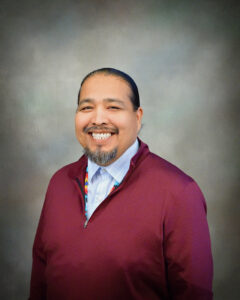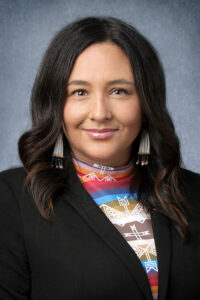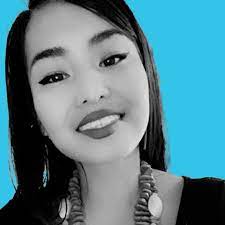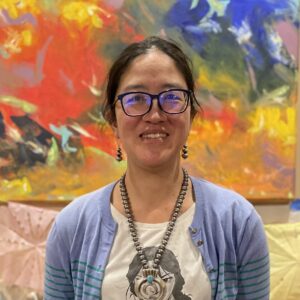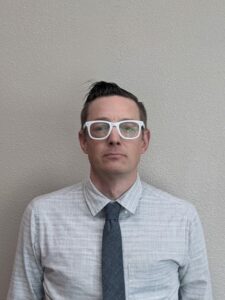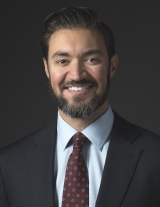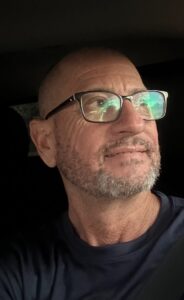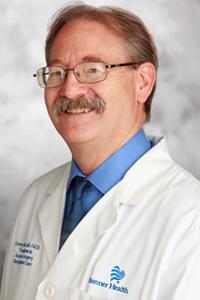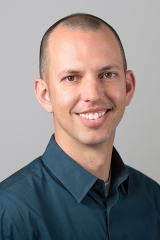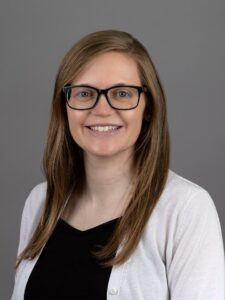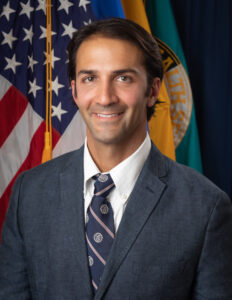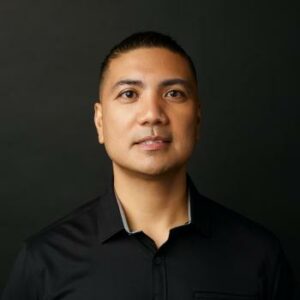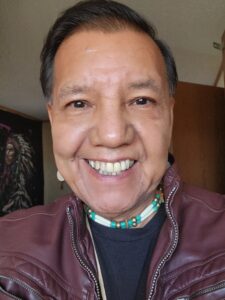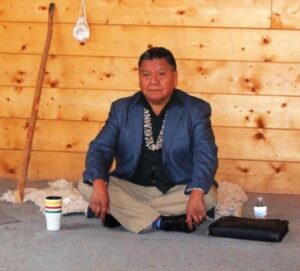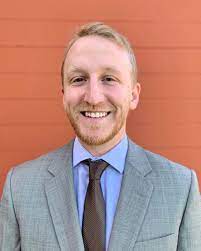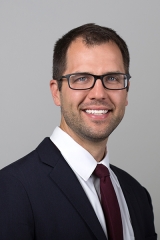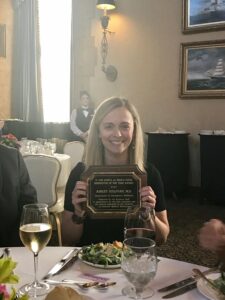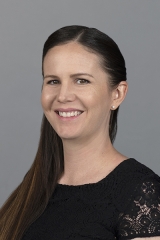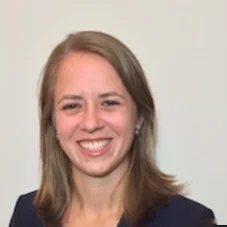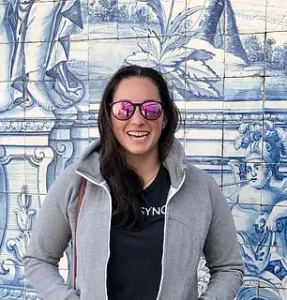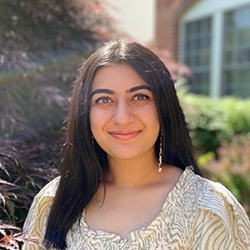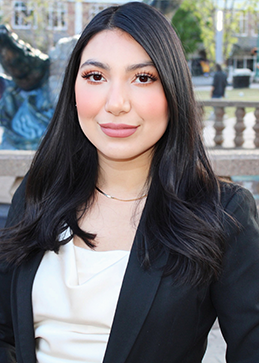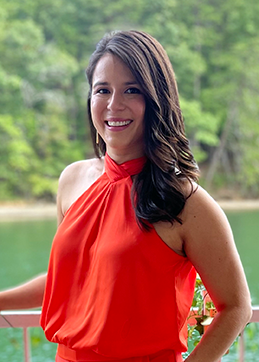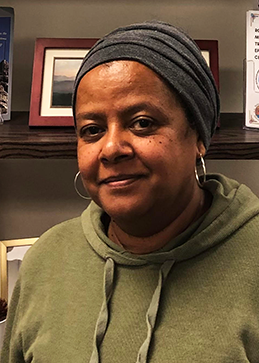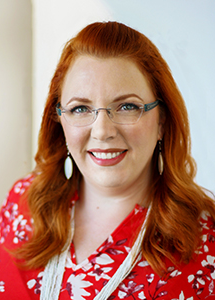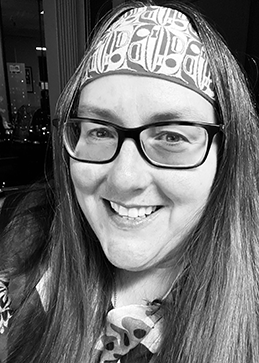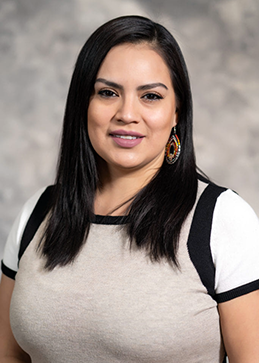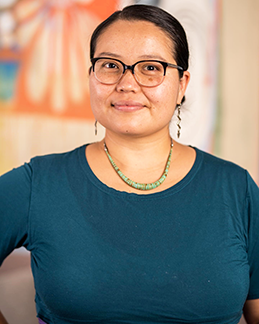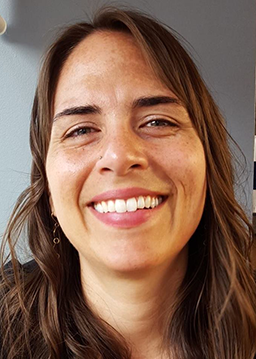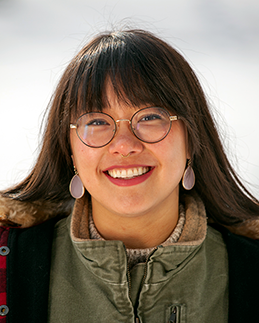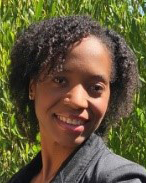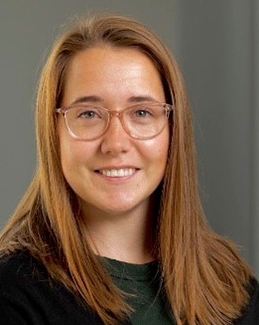Updated 8/18/2022
Growing up on the Lower Elwha Klallam Reservation, Amy Redner-Reed saw how intergenerational trauma affected her people’s well-being. Since childhood, Amy aspired to work in behavioral health to help her people heal, just as her mother and grandmother had. Today, Amy is a mother, a wife, and one of the first individuals in Washington State on the cusp of completing a new culturally-specific Behavioral Health Aide Education Program.

In 2019, Amy worked at her Tribe’s health clinic as a Patient Service Representative. Her supervisor, who knew of her passion for mental health, suggested that Amy take an opening for an administrative role within the Tribe’s counseling services. When Dr. Matthew Whittaker, the Health Director at the time, learned about Amy’s interests, he shared information about the Behavioral Health Aid Program. The catch was the deadline was the following day. To apply, Amy quickly gathered the needed materials. Not long after, she was accepted into the program.
What Makes BHAs Different
According to Katie Hunsberger, the Student Support Coordinator at the Northwest Portland Area Indian Health Board (NPAIHB), where the Program is based, BHAs serve in several roles. “BHAs are counselors, health educators, and advocates for patients. They are also equipped to address community-based behavioral health needs by finding balance between meeting the cultural needs of a community and providing specialized approaches to behavioral health treatment.”
The services that BHAs are able to provide vary. They include case management, early and crisis intervention, postvention, health education, screening assessments, and hosting community prevention activities.
What Sets Indigenous-led BHA Programs Apart
What is special about the BHA programs launched by the Alaska Native Tribal Health Consortium (ANTHC), and more recently NPAIHB, is that program staff work closely with community Elders, knowledge bearers, and culture keepers to weave Indigenous ways of knowing into the curriculum and provide mentorship to students. By using traditional Indigenous knowledge as a foundation for the programs, students are better fit to understand how to best serve Tribal community members.

The Alaska-based Behavioral Health Aide Education Program first launched 2009 and is modeled after the Community Health Aide Program (CHAP). In 2021, after successes in getting needed behavioral health specialists into Alaska Native communities, NPAIHB launched a similar two-year long program that is culturally-specific to the Tribes of the Pacific Northwest.
How the Program Works
Typically, students come into the program already working for a Tribal or IHS clinic. Through collaborating with their supervisors and program mentors, they create a BHA role at their clinic- expanding the clinic’s behavioral health capacity.
The BHA program at NPAIHB is collaborating with Northwest Indian College and Heritage University to make the Program a success. This partnership allows BHA students to receive an associate degree alongside a BHA-II certification.
To accommodate students’ schedules, the coursework is offered after work hours and remotely. Amy and other students take practical courses that have a direct application for clinical work, such as Community Intervention Awareness, Family Systems, and Public Speaking. According to Amy her “favorite part of the Program is the focus on and around Native cultures and people.”
While taking classes Amy works on her practicum where she can apply what she’s learned to her job at the Elwha Klallam counseling services. As a part of her practicum, Amy works under the supervision of a licensed therapist. This allows Amy, and other students like her in the Program, to gain experience providing one-on-one counseling sessions, writing referrals, and encouraging the use of traditional artisanship as healing.
In addition to work and classes, Amy is mentored by a community Elder. The NPAIHB BHA Program requires that students work with an Elder in their community who can provide traditional knowledge and guidance to inform the student’s work.
To expand its Elder offerings, the program recently launched the NW Elders, Knowledge Holders, and Culture Keepers ECHO Program, which meets monthly to connect health aides and students with Elder mentorship and guidance. Attendees build connections with each other and Elders, while simultaneously earning work experience hours.
Through Elder mentors, financial aid, staff members at NPAIHB (like Katie), and clinic supervisors, the BHA program intentionally works to ensure that students feel fully supported.
Planning for the Future
Once Amy completes her practicum and a few courses in fall, she will receive her associate degree and a BHA-II certification. In the meantime, she is working with her clinic’s counseling services department to create a BHA-II role.
Amy encourages anyone who is looking to make a difference in their community to consider the BHA program. “The program can not only help further your career,” said Amy “but it can also help you make a difference for others and your Tribe. This program is made for Tribal members so that they can receive education, share their knowledge and wisdom, and work with their Tribal community. That’s really special.”
Looking to the future, NPAIHB’s BHA program hopes that one day the term BHA will just be another commonly known member of the medical team. Katie says, “There’s a need for a Native perspective in our mental health care. This program will provide BHAs not only with the tools to help heal their communities, but to help heal themselves so they can carry out this important work.”

Interested in Applying for the Program?
Learn more about the application here and contact Katie Hunsberger, Student Support Coordinator at NPAIHB at khunsberger@npaihb.org with any questions. Already a Dental Health Aide Therapist, Behavioral Health Aide, or Community Health Aide? Consider joining the Community Health Aid Program ECHO Learning Collaborative, a group a dedicated practitioners working together to bridge the gap between traditional practices and modern standards of care.
You may also consider joining the NW Elders, Knowledge Holders, and Culture Keepers ECHO, which creates a space for Elders and Knowledge Keepers to support health aides and each other.
